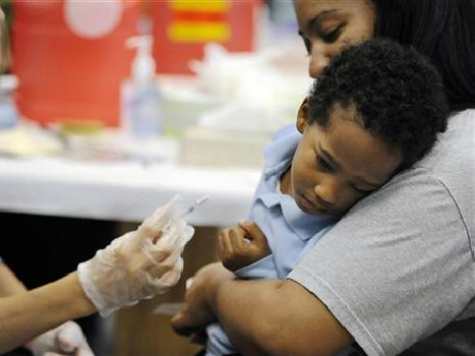Meningitis is an infection of the brain, spinal cord, or other nerve tissue. The disease is usually traced to one of five different strains of the meningococcus bacteria, which can cripple or kill; recently, worldwide, as many as 4,000 people have died each year of the disease.
Only a small number of those deaths occurred in the United States, but a fifth of all those who contract the malady end up suffering from some kind of permanent damage.
For example, there’s Aaron Loy, a student and lacrosse player at the University of California at Santa Barbara (UCSB), whose feet had to be amputated after his bout with meningitis. Indeed, the young man could face other challenges, too, for the rest of his life. As Loy’s parents wrote of their son on CaringBridge.com in December, “With his intubation out, his speech, strength and awareness improve incrementally each day. These ‘baby steps’ are actually ‘HUGE STEPS’ recognizing the severity of where he was.”
In addition, meningitis outbreaks have also occurred at Princeton University and now, also, Northern Arizona University.
Interestingly, there’s a vaccine for meningitis, Bexsero, which has been approved in Europe, Canada, and Australia – but not in the US. Why not in the US? Because our Food and Drug Administration just doesn’t operate that way. The FDA bureaucrats work according to their risk-averse, Naderite, leave-at-five-pm timetable. So no need to worry much about ordinary people and their need for medicine.
As one report noted recently, “When doctors had to remove Aaron Loy’s lower legs in November after he contracted meningococcal disease, his parents hoped students at his university would receive protection against it. So far, they’re still waiting.” [emphasis added]
Waiting for help – that’s the situation in California and Arizona, and who knows where else next. Yet interestingly, Princeton seems to have wrangled its own special pipeline for Bexsero. Meanwhile, in California and elsewhere, the wait for the vaccine continues. A recent report in Fierce Vaccines, a medical trade publication, quoted an official of the Centers for Disease Control on the prospects for getting the drug to UCSB: “It’s still an unlicensed vaccine, and just because it was done at Princeton, it doesn’t make the process any easier.” So there you have it. A powerful Ivy League school might have the political pull to get the vaccine for its students and faculty, but mere citizens out in flyover country shouldn’t necessarily get their hopes up.
Wait just a second – isn’t this a democracy? Don’t the people rule? Actually, yes, it is democracy, and yes, they do rule – but only in extraordinary times, when they are fully alerted and energized. Otherwise, in normal times, the bureaucrats do what they wish.
Nevertheless, if ordinary folks were, in fact, good ‘n’ riled up, they could probably force the FDA to allow Bexsero into the country for everyone who needs it. Yet so far, the public seems passive and unaware. Why? Perhaps because the media have covered the meningitis outbreak as a tragic human interest story, and nothing more; reporters have not connected the sad fate of Aaron Loy to the larger public-policy issues concerning FDA regulation – or, we might say, overregulation.
In the absence of connect-the-dots media coverage that encourages awareness and action, the political class, too, has been asleep; our leaders have had little or nothing to say about this meningitis outbreak. Think about it. Politicians are always proclaiming that they want us to get the best possible healthcare, and yet when they have an opportunity actually to do something that would actually improve health by vanquishing a disease, they remain silent.
Okay, so maybe we shouldn’t be too surprised that the elite class does not, in fact, care much about our well-being. Yet even from the politicians’ inside-the-beltway point of view, ignoring meningitis and other dangerous diseases is short-sighted. Here’s why: if there’s a genuine epidemic of meningitis – and such epidemics have happened before – that’s a big deal, and not just in terms of health, but also in terms of costs.
In other words, a sudden big expense could disrupt any and all fiscal projections about healthcare expenditures. That is, all the efforts to “bend the cost curve” downward could be undone – the curve could be bent back upward, big-time – if people get sick from some new strain of meningococcus.
Indeed, we might think back to the words used to describe Aaron Loy’s treatment: “intubation,” “speech, strength and awareness,” and, of course, amputation. That’s not just expensive to him, it’s expensive to us.
So where’s the Obama administration on this? After all, the President cares so much about our health that he brought forth Obamacare, right? Yet so far, not a word from him about meningitis. Interestingly, last month, First Lady Michelle Obama shared the details of her own meningitis scare when daughter Sasha was an infant. Did that chilling memory galvanize her husband into executive action? You know, did he knock heads till the problem is fixed? Uh, the answer to those questions would be a “no,” and the same applies, of course, to the feckless HHS Secretary Kathleen Sebelius.
So on the meningitis story, there’s little media curiosity about the US prohibition on Bexsero. That means, unfortunately, even less political interest. And that translates into no pressure whatsoever on the FDA. So the problem could get worse, a lot worse – unless, of course, you go to Princeton.

COMMENTS
Please let us know if you're having issues with commenting.